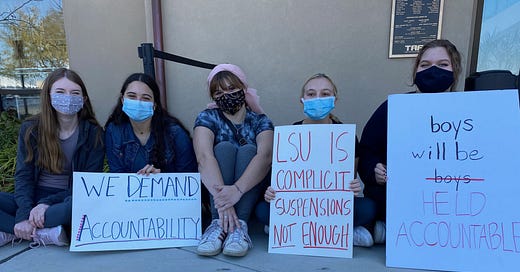The real profanity at LSU? It's not the salty language of a law professor
The school's deplorable handling of rape and sexual abuse is the real obscenity
Keep reading with a 7-day free trial
Subscribe to Something Like the Truth: By Robert Mann to keep reading this post and get 7 days of free access to the full post archives.




